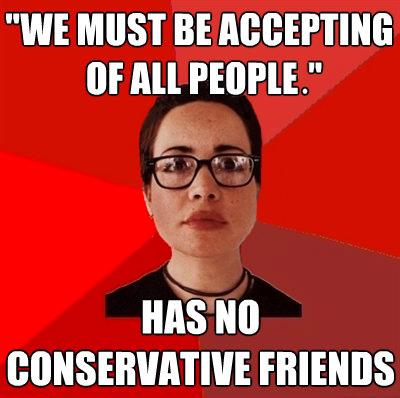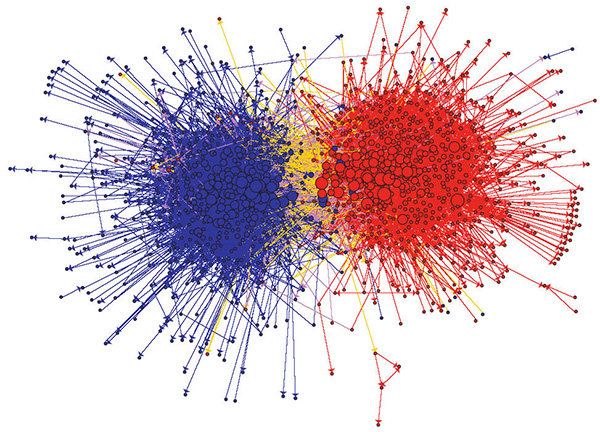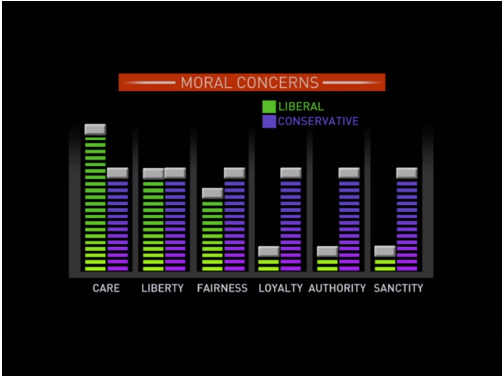Ephemerisle is sort of a floating community set up in the Sacramento Delta, comprised of several “islands” that are formed by joining together houseboats and floating platforms… Though it resembles more of a floating Burning Man, it still retains some of that libertarian seasteading flavor.
I was bunked on the big island of Titan, known as the authoritarian party island, since this island had rules(!) such as wearing a safety whistle and having a life vest handy. Risk averse nerd that I am, I was more than happy to comply with rules bent on keeping me alive. Titan’s party credentials were sealed by its huge floating dance floor and DJs blasting electronic music late into the night. Every night. Until sunrise practically. Which was challenging for me since I am not generally a party animal.
I have never been to Burning Man, and I do love my comfort, but I decided to take the plunge and attend Ephemerisle this year as an experiment in Comfort Zone Expansion. I attended a CFAR workshop in June, and this was one idea that stood out for me: CoZE or Comfort Zone Expansion. It’s the idea that we need to gather more data by trying new things. CFAR’s seminars generally rely on Kahneman’s System 1 and System 2 model of cognition:
- System 1: Fast, automatic, frequent, emotional, stereotypic, subconscious
- System 2: Slow, effortful, infrequent, logical, calculating, conscious
System 1 is something of a pattern matcher, it needs a database of experiences to match against. Trying new things expands that database and makes your intuition more powerful. Thus, I found myself at Ephemerisle on a purloined bunk at 5 am for 5 nights in a row with music pounding in my ears, in spite of the ear plugs screwed tightly in place.
Thus, I found myself at Ephemerisle on a purloined bunk at 5 am for 5 nights in a row with music pounding in my ears, in spite of the ear plugs screwed tightly in place. Unfortunately, I didn’t understand that I was really purchasing a shared bunk, not a bunk for myself, when I signed up. At 6’6”, I found that arrangement too cramped for my taste. Luckily, the assigned sleeping was fairly flexible…
Unfortunately, I didn’t understand that I was really purchasing a shared bunk, not a bunk for myself, when I signed up. At 6’6”, I found that arrangement too cramped for my taste. Luckily, the assigned sleeping was fairly flexible and I was able to locate ad hoc bunks each night to sprawl my gangly frame out on.
So what was this Ephemerisle thing? It was certainly a dance party at night, and a hot, sunny boating vacation during the day, and a non-stop intellectual smorgasbord with insightful conversations to be had around every corner. But one unexpected aspect of this trip that I hadn’t foreseen was the uncanny sense of community.
So what was this Ephemerisle thing? It was certainly a dance party at night, and a hot, sunny boating vacation during the day, and a non-stop intellectual smorgasbord with insightful conversations to be had around every corner. But one unexpected aspect of this trip that I hadn’t foreseen was the uncanny sense of community.
I am used to quiet mornings by myself shuffling around my apartment making my own tea and breakfast while by girlfriend snoozes away in the bedroom. But mornings on Ephemerisle were communal affairs. I saw others around me pursuing the same morning goals and it felt … comforting. Modern life is so isolating with each little nuclear family tucked away, separate from all the others.
Modern life is so isolating with each little nuclear family tucked away, separate from all the others. It’s a warm, inclusive feeling to share experiences with your neighbors. Each evening at sunset, the entire population of Titan was up on the roofs of the houseboats, taking in the beautiful view, enjoying the golden hour together, socially.
So what else did I learn at Ephemerisle?
Being a Bay Area crowd, of course there were lightning talks, since we do love our talks. Christine Peterson urged the women of the crowd to forsake the bad boys and give the good guys a chance by dating them for at least two months to give the oxytocin a chance to kick in.
Divia Caroline Eden talked about TagTeach and operant conditioning. She reiterated the idea that one should make as few errors as possible when learning a new skill… Divia recommended breaking it down into the smallest blocks possible and focusing on precision before speed.
Divia Caroline Eden talked about TagTeach and operant conditioning. She reiterated the idea that one should make as few errors as possible when learning a new skill. This was non-obvious to me at first, but was also touched on by Michael Valentine at the CFAR workshop. It made more sense to me when I considered that you shouldn’t practice making mistakes. Thus to learn a task, Divia recommended breaking it down into the smallest blocks possible and focusing on precision before speed. She suggested that if you can’t perform a task in the first two or three attempts, to make it simpler. I hadn’t heard her speak before, but she seemed very knowledgeable on this topic.
All the talks were quite interesting, but I will gloss over some others briefly. Fellow QS’er Dan Dascalescu talked about a blood work service called Inside Tracker that recommends optimal supplementation based on your actual nutrient levels. Conor White-Sullivan spoke on his passion for learning and being inspired by Ben Franklin’s Junto. Randy Hencken spoke about the opportunities being explored by the Seasteading Institute and clued me in to some show called Silicon Valley that had a seasteading episode. I have to check out any show with a character modeled after Peter Thiel. A fellow from Honduras was promoting the opportunities for libertarians to experiment with new forms of government in Honduras’ new autonomous free trade zones.
Bleys Goodson gave a talk on harm reduction… (He) dreams of removing all suffering from the world, even to the extent of modifying ecosystems so that predators won’t need to prey on other creatures.
Bleys Goodson gave a talk on harm reduction, which I missed, but I did have a chance to talk with him and his thesis is similar to David Pearce, who also dreams of removing all suffering from the world, even to the extent of modifying ecosystems so that predators won’t need to prey on other creatures. I had been skeptical of this approach, arguing that once we remove suffering, we will effectively narrow the full range of sensation. It may even turn out that any state short of complete bliss will seem like suffering in this world. To which Bleys effectively replied, “So what, that would be better than this world.” I thought this over for a minute and I had to concede the point. I really can’t argue against those who would reduce the suffering in this world. It’s really a worthy goal that’s worth the trade-off of a compressed range of experience.
Of course I chatted with a bunch of tech people here and there. I learned that there is a stealthy hierarchical social network platform being built called Urbit. I heard about a distributed internet resource platform called MaidSafe. One fellow made the misinformed claim that the Deep Web was resistant to government control, neglecting the fact that the NSA can tap all the pipes and capture data in transit, so it doesn’t matter if the websites you visit are indexed or not. But it’s interesting to think about the fact that the majority of the internet is unavailable to search engines.
There was much discussion of leadership, and it was pointed out that leaders must not show fear or uncertainty, since we all mimic each other and it’s unhelpful for a team to mimic fear when undertaking a project. I was reminded of a new age woo weaver, called the Visionary Activist, who asserted that:
We now know that the alpha wolf is the charismatic one who invites everyone in the pack into creative play. And you can identify an alpha wolf within 10 days of birth because it is the cub in the litter with the lowest resting heart rate. The calmest, coolest wolf turns out to be the most charismatic, the most fun.
I couldn’t actually find any supporting evidence for this “fact,” which appears to have been pulled out of some rear orifice, but I like the idea nonetheless. I don’t like the idea of a domineering leader. I am more comfortable striving to be a leader who invites allies into creative play.
I was also turned on to René Girard’s Mimetic Desire thesis, which suggests that desire is essentially social in nature, which fits into my conceptual framework nicely. It seems to fit into the whole friendly AI question, and might give a clue as to how a group of agents with diverse desires could actually outcompete a single agent with static desires. It also throws more cold water on hard individualism, which I will always delight in doing.
… There was much talk of poetry and music. Jim O. coordinated a poetry reading and brought a wonderful collection of books… People read selections like Robert Frost’s Acquainted with the Night and ee cummings’ What of a Much of a Which of the Wind.
Unlike a lot of events that I normally attend, there was much talk of poetry and music. Jim O. coordinated a poetry reading and brought a wonderful collection of books. I literally had tears streaming down my face as people read selections like Robert Frost’s Acquainted with the Night and ee cummings’ What of a Much of a Which of the Wind. I learned that I truly admire the work of Wallace Stevens, who I hadn’t heard of before. Joe B. shared poems like Six Significant Landscapes and The Man with the Blue Guitar. And then there was the hilarious and apropos I’m a Modern Man by George Carlin, who might well have been mocking half the attendees at Ephemerisle. Selections like Tim Minchin’s Storm, Circus Animals Desertion by Yeats, and Elizabeth Bishop’s Questions of Travel rounded out the reading. I was remarkably moved by this moment of culture, and it reminded me that I haven’t read poetry in years, let alone heard it read aloud with strong emotions. This is a deficit I look forward to correcting.
As for music, I learned that there is a genre called ElectroSwing, which proved to be quite popular. It combines old-timey jazz with modern progressive beats, and I actually found that I could dance to it just a little bit, unlike the jarring DubStep that the kids like to spaz out to these days. I asked around and the consensus was that Caravan Palace is one of the bands to definitely check out in this style. Though there was a diverse range of tastes represented with some people preferring trap music artists like Dirty South Joe, 90s artists Fantastic Plastic Machine, and even modern harpist Joanna Newsom.
Now I want to address a sensitive topic that presented something of a moral dilemma for me. A small number of women at Ephemerisle were topless or nude at certain times during the event.
Now I want to address a sensitive topic that presented something of a moral dilemma for me. A small number of women at Ephemerisle were topless or nude at certain times during the event. (Some men were nude as well.) Now, I would certainly never disparage public nudity at an event like this that has liberty as a core value. But newbie that I am to these sorts of events, I had a difficult time dealing with it. Given the puritanical and even prudish norms of American society, public nudity would be expected to trigger some amount of sexual arousal in onlookers. I am willing to allow that different social norms have been established in communities like this and Burning Man. Yet, I remain skeptical that at least some of the people that chose to be nude weren’t engaging in some sort of explicit exhibitionist sexual play.
Even if the nudists just wanted to feel free of arbitrary social constraints, that’s fine. All of the participants at this event were well-behaved, and the only rumors I heard of unpleasant incidents involved party crashers who were quickly escorted off of the island. I mentioned my discomfort at seeing these naked young women to a friend of mine and he reassured me that they wanted to share their beauty and there was nothing wrong with appreciating that beauty. And that made me feel better to a degree. But seeing a topless twenty-something woman hula-hooping or giving a lap dance to the judges in a cooking contest triggers more of a physiological response than some dispassionate admiration of beauty. Really, even a young woman sitting topless and nodding along sagely as conversation turns to Federal Reserve policy strikes me as remarkably kinky.
The most obvious moral dilemma I ran into was this: At what point does a forty-something like myself cross the line into perversion by ogling naked women in their twenties? Regardless of how the Ephemerisle community may view this sort of thing, I don’t want to think of myself as a dirty old man. I subscribe to virtue ethics in these scenarios. Style and character matter.
I’m the first to admit that I am being a prude here. When Christine Peterson notes the attraction that women have for bad boys, the converse should also be noted. Men are often attracted to bad girls as well. Esther Perel points this out in her excellent Ted Talk on maintaining the spark in long-term relationships. The forbidden is erotic. Transgression makes desire more potent. The most obvious moral dilemma I ran into was this: At what point does a forty-something like myself cross the line into perversion by ogling naked women in their twenties? Regardless of how the Ephemerisle community may view this sort of thing, I don’t want to think of myself as a dirty old man. I subscribe to virtue ethics in these scenarios. Style and character matter.
And yet when faced with a moral challenge, I had a remarkably difficult time resisting the urge to look at these nude women. I had the slightly unpleasant experience of struggling for control of my own involuntary physiological responses. I will grant that this dilemma would have been greatly reduced if more of the nude women had been my own age. (Is Generation X more modest than Millennials? You sure won’t see me getting naked in public any time soon.) Large age disparities equate to large power disparities, which I find ugly in any relationship. There is a beauty to symmetry in relationships. And this is where I realize that the sexual play between a voyeur and exhibitionist inherently lacks symmetry, even when the ages of the participants are comparable. The arousal of the voyeur simply cannot be reciprocated by a exhibitionist exposing herself to a large group. So yeah, I guess I am going to be a stick-in-the-mud on principle here.
And, of course, bringing this discussion home to my girlfriend of 17 years led to some fairly passionate discussions. She’s quite a jealous person, so we had to work hard to come to a mutual agreement on the matter. In the end she conceded that it’s unreasonable for her to expect me not to ever be attracted to other women, and that we both value honesty enough to deal with the consequences of talking about it. For her part, she acknowledged feeling undervalued by a society that places such a premium on the youthful beauty of women. But she dresses very androgynously (a throwback to when her queer sister used to help dress her), and she learned that showing off her figure a bit more will garner more attention from both men and women, which I don’t have a problem with, so this was a productive crisis for both of us.
Overall, I was deeply impacted by my experience at Ephemerisle… I came out of it with a renewed interest in intentional communities, a newfound love of boating, a new favorite musical genre (ElectroSwing!), a whole plethora of new ideas to explore, a greater capacity to gracefully deal with public nudity, and really many new social connections…
Overall, I was deeply impacted by my experience at Ephemerisle. It certainly far surpassed any expectations I had about Comfort Zone Expansion. I came out of it with a renewed interest in intentional communities, a newfound love of boating, a new favorite musical genre (ElectroSwing!), a whole plethora of new ideas to explore, a greater capacity to gracefully deal with public nudity, and really many new social connections, because I met some amazing people that I look forward to getting to know better in the future. I want to extend many thanks to all of the people who worked so hard to make this event happen, it really was a transformational experience for me.







